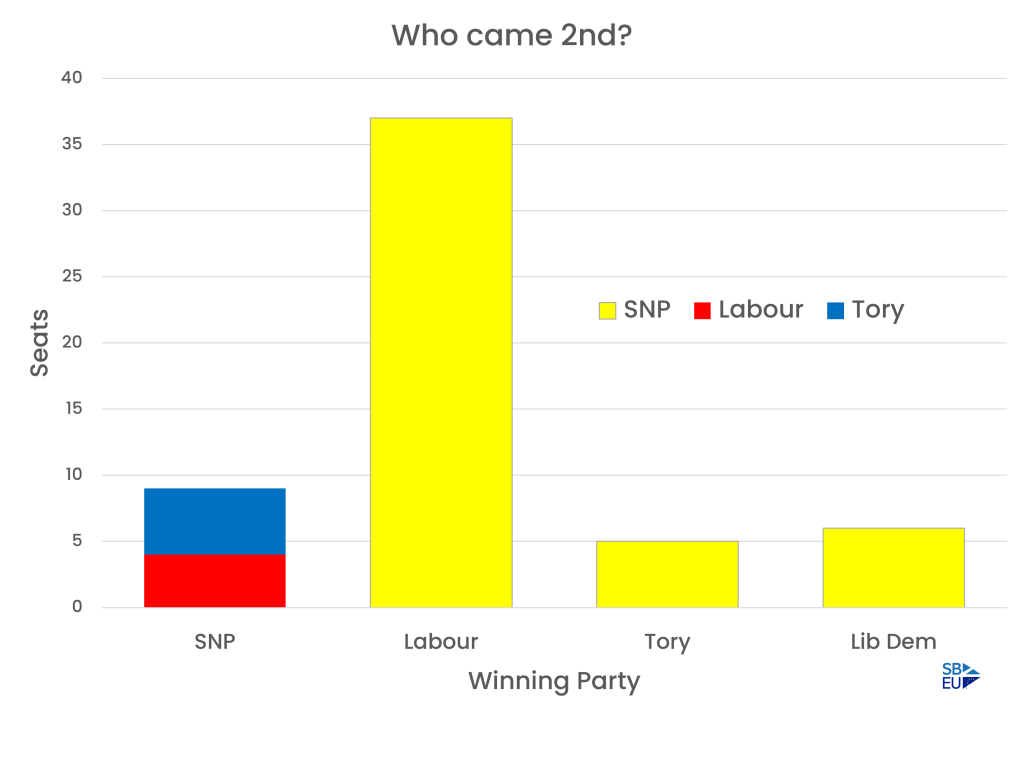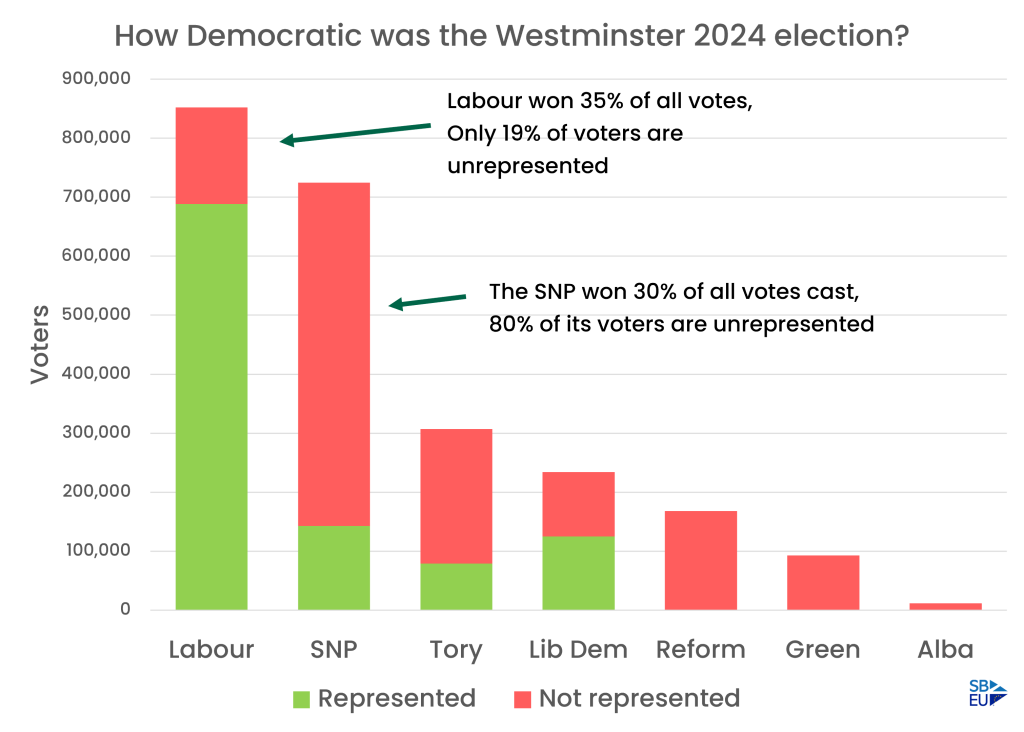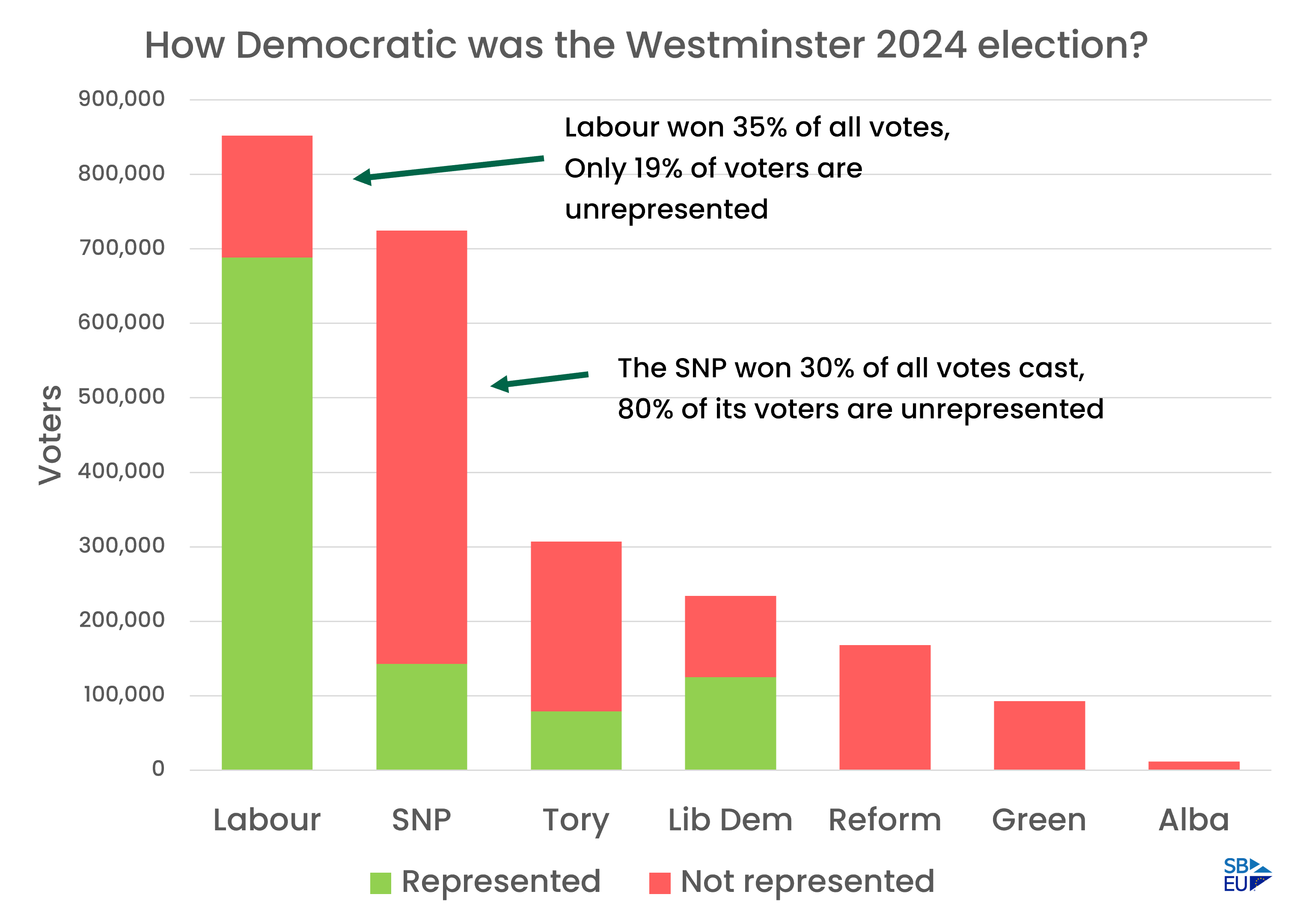In the 2024 Westminster general election Labour won a big victory – but yet again the legacy Westminster First Past The Post (FPTP) system highlighted how undemocractic this victory is. This is particularly the case in Scotland, where in every seat won by a unionist party, the SNP came second – but those who voted SNP don’t have their preferences represented in Westminster.
Whichever unionist party got the most votes in each constituency, the SNP got the 2nd most – but in the Westminster FPTP system these SNP votes count for nothing.

Of 43 European countries, 40 use some form of Proportional Representation (PR) [1]. PR seeks to be as representative as possible of voter choices – it is more democractic.
So how democractic was the Westminster election for the voters of each party?

If you voted Labour or Lib Dem, then most voters will see their preferences represented at Westminster. Conversley if you voted for an Independence party – or Reform – then very few are represented. When you consider that the SNP got 30% of all votes (as compared with Labour’s 36%) then it’s clear how undemocractic this situation is.
With 35% of the votes, Labour won 65% of the seats – with only 19% of its voters left unrepresented in the seats it didn’t win. Compare this with the SNP – which won some 30% of votes, but only 16% of seats – leaving more than 80% of its voters unrepresented in the seats where it didn’t come first.

If Westminster used a PR-based system – like virtually every other European country – then the SNP would have won only slightly fewer seats than Labour, and the smaller parties would have been included. But, more importantly, all voter preferences would be represented. An independent Scotland will use a PR-based system, delivering modern democracy to voters.
References

Leave a Reply